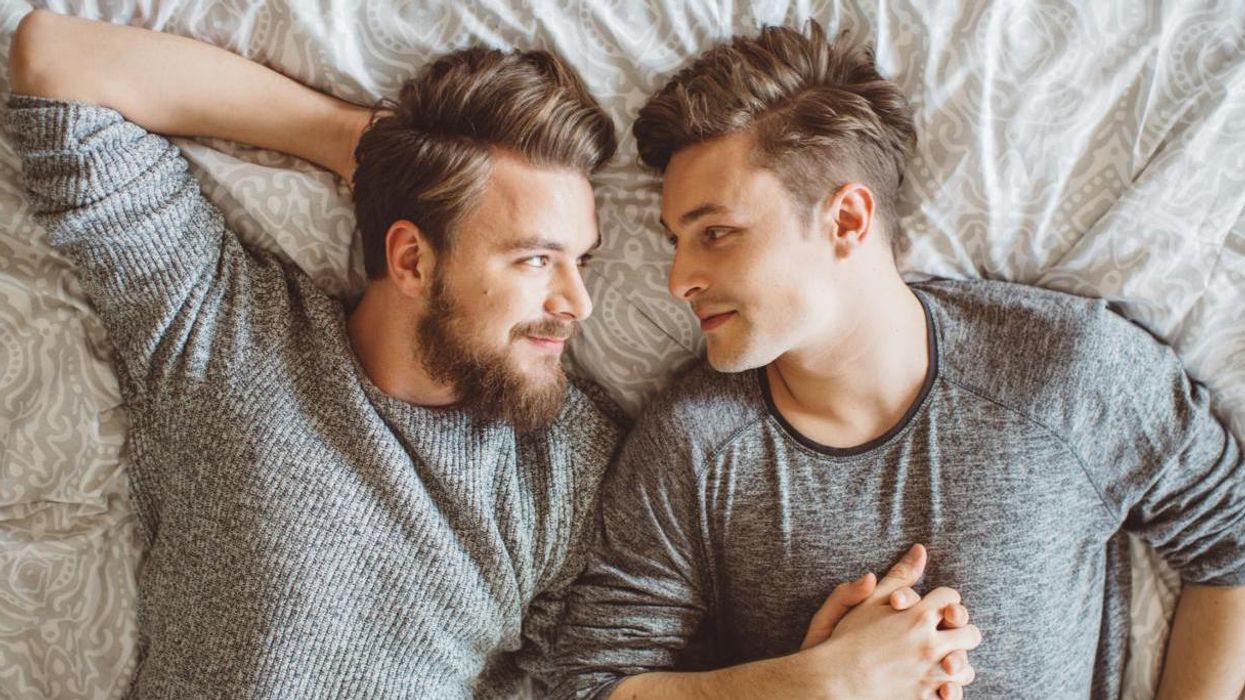News
Harriet Marsden
Jul 27, 2017

Picture:
ISTOCK / SVETIKD
Today marks 50 years since the decriminalisation of homosexuality in England and Wales.
On 27 July 1967 the Sexual Offences Act was changed and legalised sex in private between two men.
Despite this being a huge milestone for the LGBT community we still have an enormous way to go when it comes to true equality.
Trans rights are under threat in the US following Donald Trump's decision to bar them from the US military, while here in the UK more than four in 10 Britons still believe gay sex is "unnatural" - According to new polling from YouGov.
It's no surprise that a number of studies have explored the reasons behind homophobia, and what makes homophobes tick.
One plastically interesting study, conducted in 2012, presented evidence of a possible link between implicit homosexuality and homophobia.
Put simply; it looks likely that a closeted gay man is more likely to be anti-gay. Surprising very few people.
According to the 2012 study, published in the Journal of Personality and Social Psychology, there are higher levels of homophobia in those who have unacknowledged feelings of attraction towards the same sex.
These levels were exacerbated when the parents of the individuals also held homophobic attitudes.
Lead author of the study, Netta Weinstein, wrote:
Individuals who identify as straight but in psychological tests show a strong attraction to the same sex may be threatened by gays and lesbians because homosexuals remind them of similar tendencies within themselves.
According to co-author Richard Ryan: "In many cases these are people who are at war, with themselves, and they are turning this internal conflict outward."
Those people who have such discrepancies, who have really a split between their unconscious attraction and what they consciously say about themselves, are more likely to come from authoritarian homes.
If you are a parent who really believes your child should be straight, and when you use whatever means you can to convince them them that they’re only good and worthy if they are, that would be very controlling and it creates a lot of conflict in the child.
The study measured explicit (those we are consciously aware of) and implicit sexual attractions (those we do not acknowledge or know about), by examining the difference between how people described their sexual orientation, and how they reacted during a quick timed task.
The researchers also measured explicit and implicit homophobia, via questionnaires and debate.
The methodology involved showing participants words and pictures on a computer screen. They were also primed with the words 'me' and 'others', before being shown the words 'gay', 'straight', 'homosexual' and 'heterosexual' as well as a number of pictures.
It's worth noting that the study assumed that a faster association of 'me' with 'gay' indicated an implicit homosexuality, which is arguably flawed.
The results found that participants whose performance in the implicit tests were 'less heterosexual' than how they described themselves, they were more likely to be hostile towards gay people.
In other words, those who were 'implicitly homosexual' were also more likely to be homophobic.
Not only are the assumptions of the methodology flawed, but the participants were all college students, so authors suggested that in future a study testing younger adolescents against older adults would be fruitful, to see how attitudes change over time.
They also acknowledged that the correlational nature of the findings meant definitive findings were impossible.
Moreover, there has thusfar been very little research into what drives anti-gay attitude; researchers claim that this study is the first to examine the role of both parenting and sexual orientation in the formation of homophobia.
That said, a previous study from 1996 had found that homophobic yet self-identified heterosexual men showed an "increase in penile erection," in response to gay male erotica – significantly more so than non-homophobic heterosexual men.
More: This map shows where it is still illegal to be gay
More: This Welsh hairdresser had the perfect response a homophobic customer
Top 100
The Conversation (0)













